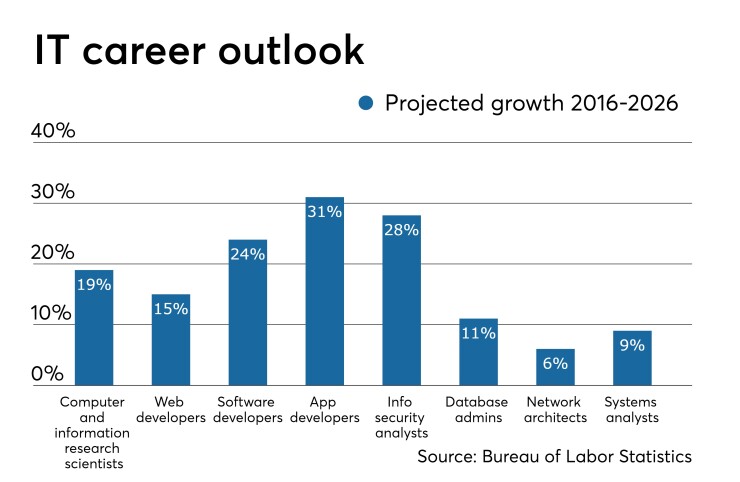This story is the latest installment in Credit Union Journal’s ongoing special report on fintech, which will run throughout the month of August.
As companies struggle to navigate a tight labor market due to the lowest unemployment rate in 50 years, credit unions are beefing up their recruiting tactics to lure tech talent.
Credit unions already have a reputation for being a step or two behind banks and tech firms, suggested Adam Eckels, co-founder of AJ Consultants LLC. This perception can make it harder for CUs to find and recruit strong tech professionals.
But this does not mean credit unions are losing the war for talent.

In November, the University of South Florida Federal Credit Union announced new chief technology officer. James Stock, former vice president of information technology at Grow Financial Credit Union, joined USF FCU for its culture, competitive pay and benefits package.
“I think offering competitive pay and making sure that people understand the true benefits of working for your organization are probably the easiest way to ensure that you are able to get new talents,” said Stock.
In addition to benchmarking employee salaries against market rates for the information technology sector, USF FCU offers perks such as tuition reimbursement, fee coverage on 401(k) plans, training resources for technical workers and more. As a university-affiliated credit union, the Tampa-based institution has also made investments to better attract and retain millennials and other young workers. In January, it created new scholarships and expanded existing ones for a total of $205,000, supporting USF students to pursue disciplines such as biomedical engineering.
Credit unions that want to compete for top talent with banks and fintechs must highlight what distinguishes them from other employers, said Michele Garcia, VP of human resources at AmeriCU. The Rome, N.Y.-based institution added two new hires to its chief leadership team earlier this month.
Technical workers at large companies sometimes get siloed and their functions continue to be specialized, Garcia said. Credit unions, she countered, offer employees the flexibility to juggle multiple projects and dabble in areas that might not be their specialties.
Tiffany Haynes, general manager of human resources at Jack Henry & Associates, a firm which works with credit un-ions across the country, noted that by offering staff a broader scope of responsibilities across the organization, credit unions can help employees acquire a wider range of competencies and ultimately increase their career possibilities.
“Credit unions should not understate the talent value proposition they offer,” she said.
That starts during the recruiting process. Haynes advised credit unions to be clear about where they want to go with their tech ventures during the hiring process. This ensures that candidates, especially software engineers and other tech job seekers, have a sense of purpose to their work, she said.
The potential for long-term growth and career development can be differentiators for credit unions, many said. Tech startups and larger companies, however, are less likely to offer this level of job security given their higher turnover rates, Garcia said. Garcia also pointed out that one AmeriCU VP began as an entry-level employee.
Credit unions are one of the few remaining industries where employees might spend their entire career at the same institution, starting on the front lines and working their way into management-level positions.
Despite that, credit unions will have to get creative if they hope to stay competitive, said Eckels. That means everything from enticing annual bonuses to better parental leave policies, more vacation time and flexibility with telecommuting, he said. While big banks and tech firms have stock options and ownership stakes, credit unions can offer benefits such as a supplemental executive retirement plan (SERP) or a deferred-compensation agreement to retain and reward key executives.
“Most banks – I would say nine out of 10 – don't offer anything like that,” Eckels said. “If credit unions can't offer the same bonus or salary as banks do, they need to get creative in their other benefits that are personal and financial.”
Along with investing time and money to recruit highly skilled tech employees, credit unions must clearly communicate to younger candidates what makes them special and why their community-focused mission is unique, said Eckels.
“Credit unions are marketing through the branding of the company, but then also through the recruitment process,” Eckels said. “If they're working directly through human resources and vice president-level leadership, those people need to be telling the story and promoting the passion behind credit unions’ mission correctly.”





